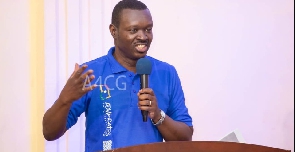On 17th February 2006, I had the opportunity to drive my beloved partner to London?s Gatwick Airport in order for her to catch an Accra bound flight. During the check-in, I over heard two young males (students of KNUST) say the inward journey from Kumasi to Accra was made by their driver in an hour and fifty minutes. They laughed over it and said in unison that they should be back in Kumasi, if God permits, by 20:00 GMT. How careless I said to myself. You expect ?God to permit? you to travel in a vehicle exceedingly fast in order to reach Kumasi in time for what? It is trite to mention that the flight from London Gatwick was scheduled to depart NOON and ETA Accra 18:00 GMT?near six hours or more. My question is: whose responsibility is it to save our own lives? Is the speeding driver the saver of your life or the police who are over stretched or do we ?gamble? our life away and hope ?God permits??
Principles of Speed Enforcement
The enforcement of traffic law by the Ghanaian police should be guided by the principles of proportionality in applying the law and securing compliance; targeting of enforcement action; consistency of approach; and transparency about what enforcement action is undertaken, and why; and recognition that effective partnership with other organisations is essential.Proportionality
Proportionality means relating enforcement action to the risks. Those whom the law protects and those on whom it places duties expect that action taken by the police to achieve compliance (in this case speed limits) should be proportionate to the risks to individuals and property and to the seriousness of any breach.Targeting
Targeting means making sure that enforcement action is directed primarily at those whose behaviour poses the greatest risk (particularly to others), often at identifiable locations or circumstances. Targeting needs to take full advantage of a wide range of information sources, including academic research, to develop a greater level of understanding of what the problems are and how to resolve them, so that enforcement action can be properly focused and prioritised.Effective targeting will therefore ensure that road risks are objectively identified and prioritised for appropriate action; that suitable resources are deployed; and that pertinent monitoring and evaluation takes place so that costs and benefits can be properly assessed and future decision making enhanced.
Consistency
Consistency of approach does not mean uniformity. It does not mean taking a similar approach in similar circumstances to achieve similar ends. Police officers are faced with many variables; the decision on enforcement action is a matter of judgement, and the police officer must use discretion.Road users do expect consistency from the police nationwide. Inconsistencies in enforcement practices undermines public confidence and contributes to resentment.
Transparency
Police enforcement policy, and the principles upon which it is based, must be open and transparent if public confidence is to be maintained and compliance with the law secured.Transparency means helping drivers to understand what is expected of them and why; it also means ensuring clarity about what the public can expect from the police. Raising the public?s understanding of the full implications of their action (specifically including the human and financial costs) will assist in changing behaviour and ultimately attitudes.
Effective Partnerships
Effective speed enforcement cannot be carried out by one agency acting alone. The Ghana Police Service should actively seek to develop close working relationships with others ( e.g. public works department, magistrates? courts, education authorities) in order to promote road safety. The police should strive to develop these partnership so that approaches to speed compliance which do not rely solely upon sanctions are fully exploited.BROTHERS AND SISTERS, SPEED KILLS AND WRECKS LIVES. It could have been easy to say it is our life and we should live it the way we choose. However, have a thought for the survivors of a sole bread winner who has been cut down in his or her prime by your reckless disregard for life. Just ask yourself this question: Did I toil all these years only to gamble my life away and hope ?God permits?? If you value life, why not tell the driver of the speeding vehicle in which you are a passenger to adhere to the speed limit? If you do not, then you are condoning a dangerous act and the consequences could scar you for life. There is too much pain out and we do not want to increase the tally.
Thanks kindly.



















